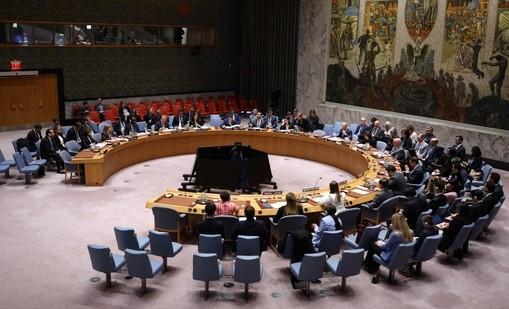
Was LeT involved? UNSC asks Pak on J&K attack, refuses to accept ‘false flag’ claim
The United Nations Security Council (UNSC) has refused to accept Pakistan’s “false flag” narrative on the recent Pahalgam attack in Jammu and Kashmir, instead opting to question the involvement of the terror outfit Lashkar-e-Taiba (LeT) in the incident. The development has raised concerns over the role of the Pakistan-based group in the attack that targeted tourists in the region.
According to reports, UNSC members held a closed-door meeting at the request of Pakistan to discuss the Pahalgam attack, which left several people injured. However, instead of buying into Pakistan’s claims of a “false flag” operation, the council members pressed Pakistan to provide more information on the involvement of LeT, a group known for its radical and violent ideology.
LeT, which is based in Pakistan, has been accused of carrying out several terrorist attacks in the region, including the 2008 Mumbai attacks that killed over 160 people. The group has been designated as a terrorist organization by several countries, including the United States, the United Kingdom, and India.
The UNSC’s refusal to accept Pakistan’s narrative on the Pahalgam attack comes as a blow to Islamabad’s attempts to deflect responsibility for the incident. Pakistan has repeatedly denied any involvement in the attack, instead accusing India of perpetuating a “false flag” operation to tarnish its reputation.
However, the UNSC’s skepticism towards Pakistan’s claims is well-founded. The attack on Pahalgam, which is a popular tourist destination in Jammu and Kashmir, was characterized by its brutal and indiscriminate nature. The attackers targeted innocent tourists, including women and children, with no regard for human life.
The UNSC’s questioning of LeT’s involvement in the attack is also significant, given the group’s history of violence and terrorism. LeT has been accused of carrying out several attacks in the region, including the 2001 attack on the Indian Parliament, which killed over 10 people.
In addition to the UNSC’s questioning of LeT’s involvement, some members reportedly also brought up the targeting of tourists on the basis of religion. This is a worrying trend that has been observed in several recent attacks in the region, including the Pulwama attack in 2019 that killed over 40 people.
The Pulwama attack was carried out by the Jaish-e-Mohammed (JeM), another Pakistan-based terror group that has been designated as a terrorist organization by several countries. The attack was widely condemned by the international community, and India responded by launching a military strike against a JeM training camp in Pakistan.
The UNSC’s refusal to accept Pakistan’s narrative on the Pahalgam attack is a significant development that highlights the international community’s growing concerns over Pakistan’s role in promoting terrorism in the region. The council’s questioning of LeT’s involvement in the attack is also a welcome move that sends a clear message to Pakistan that the world will not tolerate its support for terrorist groups.
In conclusion, the UNSC’s refusal to accept Pakistan’s “false flag” narrative on the Pahalgam attack is a significant development that highlights the international community’s growing concerns over Pakistan’s role in promoting terrorism in the region. The council’s questioning of LeT’s involvement in the attack is also a welcome move that sends a clear message to Pakistan that the world will not tolerate its support for terrorist groups.



